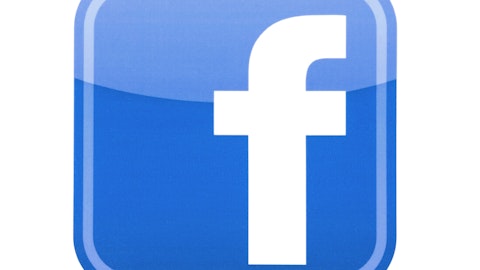If tech cleaves into two as some analysts predict, there will be some winners and losers, although who is in the winners category could change and who is in the losers category could also change. In this article, let’s analyze the potential winners of the China trade war if it gets worse, and how the smart money is positioned among them. Winning in this case might not mean more profits or higher market cap, however.
Our research has shown that hedge funds’ small-cap stock picks managed to beat the market by double digits annually between 1999 and 2016, but the margin of outperformance has been declining in recent years. Nevertheless, we were still able to identify in advance a select group of hedge fund holdings that outperformed the market by 38 percentage points since May 2014 through May 15, 2019. Our best performing hedge funds strategy also returned 26.4% year-to-date and outperformed the S&P 500 Index by nearly 12 percentage points (see the details here). We were also able to identify in advance a select group of hedge fund holdings that underperformed the market by 10 percentage points annually between 2006 and 2017. Interestingly the margin of underperformance of these stocks has been increasing in recent years. Investors who are long the market and short these stocks would have returned more than 27% annually between 2015 and 2017. We have been tracking and sharing the list of these stocks since February 2017 in our quarterly newsletter.

Facebook Inc (NASDAQ:FB) would win because it doesn’t have many users in China. Facebook would also not have to compete against Tencent, which is China’s version of Facebook. Tencent is about as strong as Facebook financially, and has shown a willingness to go overseas. Of the around 700-740 elite funds we track, 161 funds owned $14.87 billion of Facebook Inc (NASDAQ:FB) on December 31, versus 164 funds and $16.6 billion respectively on September 30.
Uber Technologies Inc (NYSE:UBER) would win. Uber owns part of Didi at around 15.4%. Didi will still be big in China, but it might not be big elsewhere. If the tech world splits into two, one under the American sphere and one under the Chinese sphere, Didi might not compete against Uber in the American sphere and Uber will have less competition.
Amazon.com, Inc. (NASDAQ:AMZN) would win. Amazon has a wealthier customer base than Walmart. If the tariffs increase, Amazon’s customers would be able to take higher prices while Wal-Mart customers won’t be able to. Amazon would win relative to Wal-Mart in that it would lose less than its biggest competitor. 168 top funds had a bullish position in Amazon.com, Inc. (NASDAQ:AMZN) at the end of December.
Netflix, Inc. (NASDAQ:NFLX) would win. Netflix doesn’t really have much of an audience in China. If it were banned in China due to the war, Netflix would still do okay because it doesn’t make much money from the country. If Chinese competitors try and out-Netflix Netflix, they won’t be able to due to the East West tech divide. 83 top funds had a bullish position in Netflix, Inc. (NASDAQ:NFLX) as of the most recent 13-F reporting period, down 1 fund from the previous quarter.
Twitter Inc (NYSE:TWTR) would win in that it doesn’t have many customers in China. Less competition due to the East West tech divide means higher user growth for Twitter. 49 top funds were long Twitter Inc (NYSE:TWTR) at the end of December, up 7 funds from the previous quarter.
Disclosure: None.





